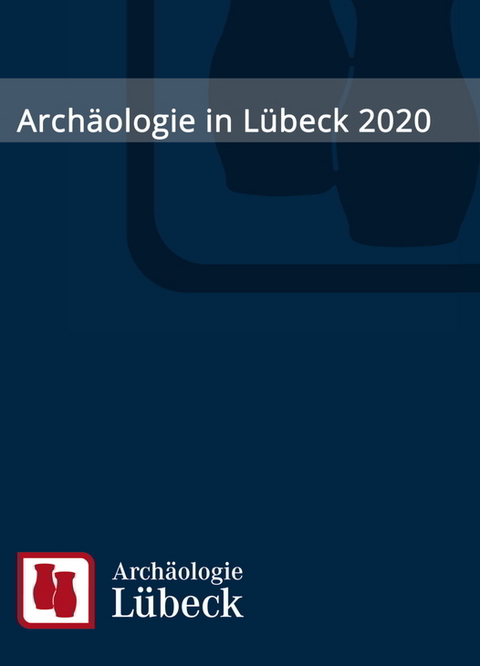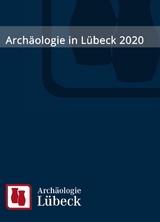Archäologie in Lübeck 2020
Seiten
2021
|
1., Auflage
VML Vlg Marie Leidorf (Verlag)
978-3-86757-078-7 (ISBN)
VML Vlg Marie Leidorf (Verlag)
978-3-86757-078-7 (ISBN)
Das Jahr 2020 ist der zweite Band der Reihe zur Jahresschrift der Abteilung Archäologie der Hansestadt Lübeck. Auf 160 vollfarbigen Seiten werden die wichtigsten Ausgrabungen, Ergebnisse und aktuelle Projekte sowie Forschungen berichtet, die im UNESCO Welterbe Lübecker Altstadt als auch im „Landgebiet“ zwischen Ostsee und dem Flughafen Blankensee im letzten Jahr durchgeführt wurden. Aus der Innenstadt gibt es überaus bedeutende neue Ergebnisse zu mittelalterlichen Steinwerken und dem bis dato ältesten Lübecker Backsteinbau des 12. Jahrhunderts sowie zu geborgenen und konservierten hölzernen Großobjekten eines hochmittelalterlichen Kammrades derselben Zeitstellung, das stellvertretend für die hochtechnologisierte frühe urbane Gesellschaft der Travemetropole steht. Die Berichte aus dem Landgebiet umfassen die Zeiten von Funden eines neolithischen Steinbeiles über eisenzeitliche Siedlungsreste bis hin zu neuzeitlichen Dampf-Ziegeleien und Flakstellungen aus dem 2. Weltkrieg. Daneben treten auch ein umfassender Restaurierungsbericht einer kaiserzeitlichen Urne sowie Beispiele für Drohnenanwendungen und GIS-Anwendungen im Berufsalltag der Abteilung. Abschließend folgen Beiträge zur öffentlichkeitswirksamen Nutzung, Geschichte und Entwicklung archäologischer Wanderpfade im Waldhusener Forst sowie eine Ausblick auf eine aktuelle Dissertation über frühneuzeitliche Keramik.
The volume for 2020 is the second in the series of yearly publications of the archaeological section of the Hanseatic City of Lübeck. Over 160 full-colour pages, it reports on the most important excavations, results and current projects and research that have been carried out in the UNESCO World Heritage area of Lübeck’s historic city centre, as well as in the “rural district” between the Baltic Sea and Blankensee airport over the last two years. From the city centre there are highly significant new results concerning the medieval stone works and the so far oldest brick building in Lübeck, as well as on the excavated and conserved wooden remains belonging to a high medieval cogwheel of the same date, which can stand as a representative for the high-tech early urban society of this metropolis on the banks of the Trave. Reports on the rural district range from the stray find of a Neolithic stone axe to Iron Age settlement remains, steam-powered brickworks of the Modern Period and WWII flak positions. In addition, the volume contains a detailed report on the restoration of a Roman Period urn, as well as examples for how drones and GIS programmes are used in the section’s everyday work. Last but not least are the contributions on the public-centred use, history and development of archaeological heritage trails in the Waldhusener forest, as well as a brief look at a current dissertation project on Early Modern pottery. The volume for 2020 is the second in the series of yearly publications of the archaeological section of the Hanseatic City of Lübeck. Over 160 full-colour pages, it reports on the most important excavations, results and current projects and research that have been carried out in the UNESCO World Heritage area of Lübeck’s historic city centre, as well as in the “rural district” between the Baltic Sea and Blankensee airport over the last two years. From the city centre there are highly significant new results concerning the medieval stone works and the so far oldest brick building in Lübeck, as well as on the excavated and conserved wooden remains belonging to a high medieval cogwheel of the same date, which can stand as a representative for the high-tech early urban society of this metropolis on the banks of the Trave. Reports on the rural district range from the stray find of a Neolithic stone axe to Iron Age settlement remains, steam-powered brickworks of the Modern Period and WWII flak positions. In addition, the volume contains a detailed report on the restoration of a Roman Period urn, as well as examples for how drones and GIS programmes are used in the section’s everyday work. Last but not least are the contributions on the public-centred use, history and development of archaeological heritage trails in the Waldhusener forest, as well as a brief look at a current dissertation project on Early Modern pottery.
The volume for 2020 is the second in the series of yearly publications of the archaeological section of the Hanseatic City of Lübeck. Over 160 full-colour pages, it reports on the most important excavations, results and current projects and research that have been carried out in the UNESCO World Heritage area of Lübeck’s historic city centre, as well as in the “rural district” between the Baltic Sea and Blankensee airport over the last two years. From the city centre there are highly significant new results concerning the medieval stone works and the so far oldest brick building in Lübeck, as well as on the excavated and conserved wooden remains belonging to a high medieval cogwheel of the same date, which can stand as a representative for the high-tech early urban society of this metropolis on the banks of the Trave. Reports on the rural district range from the stray find of a Neolithic stone axe to Iron Age settlement remains, steam-powered brickworks of the Modern Period and WWII flak positions. In addition, the volume contains a detailed report on the restoration of a Roman Period urn, as well as examples for how drones and GIS programmes are used in the section’s everyday work. Last but not least are the contributions on the public-centred use, history and development of archaeological heritage trails in the Waldhusener forest, as well as a brief look at a current dissertation project on Early Modern pottery. The volume for 2020 is the second in the series of yearly publications of the archaeological section of the Hanseatic City of Lübeck. Over 160 full-colour pages, it reports on the most important excavations, results and current projects and research that have been carried out in the UNESCO World Heritage area of Lübeck’s historic city centre, as well as in the “rural district” between the Baltic Sea and Blankensee airport over the last two years. From the city centre there are highly significant new results concerning the medieval stone works and the so far oldest brick building in Lübeck, as well as on the excavated and conserved wooden remains belonging to a high medieval cogwheel of the same date, which can stand as a representative for the high-tech early urban society of this metropolis on the banks of the Trave. Reports on the rural district range from the stray find of a Neolithic stone axe to Iron Age settlement remains, steam-powered brickworks of the Modern Period and WWII flak positions. In addition, the volume contains a detailed report on the restoration of a Roman Period urn, as well as examples for how drones and GIS programmes are used in the section’s everyday work. Last but not least are the contributions on the public-centred use, history and development of archaeological heritage trails in the Waldhusener forest, as well as a brief look at a current dissertation project on Early Modern pottery.
| Erscheinungsdatum | 15.12.2021 |
|---|---|
| Reihe/Serie | Archäologie in Lübeck |
| Co-Autor | Manfred Schneider, Dirk Rieger, Ingrid Sudhoff, Sylvia Morgenstern, Doris Mührenberg, Heiko Kräling, Dirk Rummert, Arne Voigtmann, Marco Hauser |
| Verlagsort | Rahden |
| Sprache | deutsch |
| Maße | 210 x 297 mm |
| Gewicht | 720 g |
| Einbandart | Paperback |
| Themenwelt | Geisteswissenschaften ► Archäologie |
| Geschichte ► Allgemeine Geschichte ► Mittelalter | |
| Schlagworte | Archäologie • Eisenzeit • Forschung • Mittelalter • Neuzeit • Öffentlichkeitsarbeit • Stadtarchäologie • Vor- und Frühgeschichte |
| ISBN-10 | 3-86757-078-7 / 3867570787 |
| ISBN-13 | 978-3-86757-078-7 / 9783867570787 |
| Zustand | Neuware |
| Informationen gemäß Produktsicherheitsverordnung (GPSR) | |
| Haben Sie eine Frage zum Produkt? |
Mehr entdecken
aus dem Bereich
aus dem Bereich
eine neue Geschichte des Mittelalters
Buch | Hardcover (2023)
C.H.Beck (Verlag)
CHF 53,20




